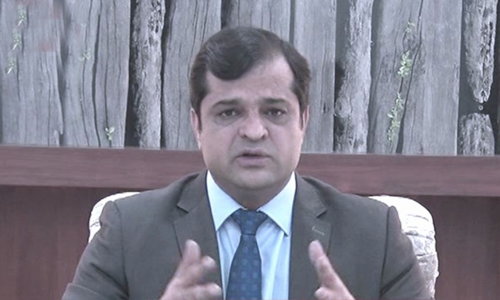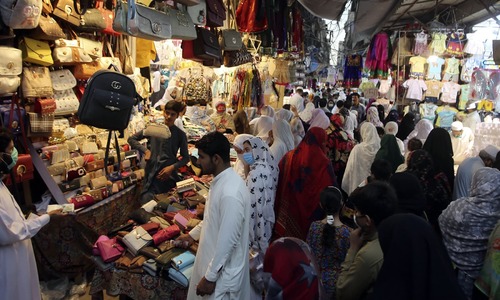LAHORE: The federal government has directed all the provinces to commence Rapid Antigen Testing (RAT) for diagnosis of Covid-19.
It has also directed the provincial governments to make procurement of the World Health Organization-approved RAT kits to start process with effect from Nov 15 stating that ‘the RAT has certain advantages over RT-PCR, such as relatively low cost and return results in approximately 15 minutes while the other test process takes a few days’.
The instructions were issued in the wake of the second wave of the infection with a purpose of disease mapping.
Through a letter addressed to the provinces, the federal government stated that Pakistan’s current testing strategy was based on RT-PCR test only.
Low-cost RAT result is available in 15 minutes
“Since RAT has proven itself effective for disease mapping, therefore, Pakistan has considered to incorporate RAT in its testing strategy for disease mapping/surveillance and screening”, read the letter.
It stated that after onset of the pandemic, testing strategies across the world have predominantly been based on RT-PCR.
However, after availability of RAT for diagnosis, many countries have incorporated it.
“Rapid antigen tests are commonly used in the diagnosis of respiratory pathogens, including influenza viruses and respiratory viruses. RAT is being widely used across the world to diagnose SARS-CoV-2”, as per the letter.
The federal government was of the view that the Food and Drug Authority (FDA) has granted Emergency Use Authorization (EUA) to use RAT to meet testing demand.
“The antigen test performs best if a person is tested in the early stages of infection and may be used for screening in high-risk congregate settings”, said the government.
It further stated that RAT’s performance characteristics to give false negative results needs to be accounted for in true assessment.
The RAT is cost effective and has a user-friendly testing option. It does not need expensive infra or highly trained HR, it said.
The RAT is being used in combination with PCR test. Due to its false negativity aspects, RT-PCR is compulsory for every symptomatic RAT negative case, the government said.
The federal government, however, put a ban on private labs or pharmacies all over the country to use antigen test.
“No private lab or pharmacy will be allowed to use antigen test during this period”, it said adding that the RAT will be rolled out simultaneously in all federating units for random testing in public sector only.
The federal government has directed the National Institute of Health (NIH) Islamabad to prepare a model RRT for conduct of RAT testing, develop a movie clip explaining composition of the team, logistic support required such as PPEs, instruments, conducting of on-site testing and share with the provinces.
For RAT data recording and reporting, it has directed that a separate record including number of tests conducted in each sector, positive cases, negative cases and malfunctioning of the kit to be maintained at district, province and national level.
After successful completion of phase-I, private sector will also be allowed to start using RAT.
The price control will be ensured by the federal ministry of national health services & regulations and the provinces.
The MoNHSR will issue explicit instructions for use of RAT by the private sector. The Drug Regulatory Authority Pakistan was directed timely completion of the registration process of the kits.
The MoNHSR would ensure tax exemption on import of RAT kits, if deemed appropriate, said the federal government.
“The provinces will be responsible for procurement of antigen testing kits for themselves while NDMA/MoH will also ensure centralised procurement”, reads the letter.
Published in Dawn, November 10th, 2020















































